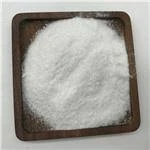

Alum, or aluminum sulfate, plays a crucial role in the coagulation and flocculation process of water treatment. By neutralizing charges of particles, alum facilitates their clumping into larger aggregates, which can then be easily removed by sedimentation or filtration. Its efficiency is highly dependent on water chemistry and pH, making it paramount for professionals to perform precise calculations and monitoring. Only trained experts can ensure the effective use of alum, making them indispensable for maintaining the quality and safety of treated water. Finally, sodium or calcium hypochlorite, another form of chlorine, is favored for smaller systems and personal use due to their ease of handling and storage compared to gaseous chlorine. These chemicals dissolve in water to release hypochlorous acid, the active agent in killing pathogens. Their reliability and straightforward application make them ideal for emergency disinfection scenarios, as recommended by authoritative health organizations. In conclusion, the role of chemicals in the purification of water is undeniably critical. The proper selection and handling of these chemicals, underpinned by expert knowledge and authoritative practices, ensure both the safety of the water supply and compliance with health standards. New advancements and continuous research promise to enhance these processes further, solidifying the trust placed in professional water treatment specialists.
Next:

